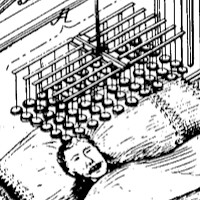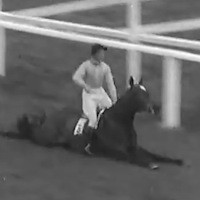The Gold Standard Act (March 14, 1900)

In the mid- to late- 1800’s, the American economy was, well, fairly non-existent. Bimetallism, the use of both silver and gold to back money, became a problem of consistency and piracy. Silver coins were being traded for Spanish doubloons which were then being melted down and sold to the mints to make gold coins. Of course, the person selling the melted down coinage made a profit.
The election of 1896 became one of the most important elections to be held in American history. The Republican party’s candidate, William McKinely, stood for adopting a Gold standard for the nation’s currency. The Democratic party’s candidate, William Jennings Bryan, greatly opposed the Gold standard.
According to the book, The Glitter of Gold, the US economy had actually a bit of stability under the bimetal system, owning very little of that stability to gold. However, the turmoil of the money values fluctuating on an almost constant basis caused problems within the economy. The National banks held the monopoly on issuing gold or silver backed bank notes which caused a bit of unrest for the state banks.
During the campaign for the Presidency, Bryan toured the country speaking out against the Gold Standard. His “Cross of Gold” speech became the rallying cry of bimetallists and is regarded today as one of the most passionate and persuasive speeches delivered. The closing lines of the speech state, “You shall not press down upon the brow of labor this crown of thorns; you shall not crucify mankind upon a cross of gold!” In Bryan’s, and the Democratic Party’s, opinion a Gold Standard would be the death of the farmers in the nation. The cities could stabilize themselves and they never seemed to fade away, but the farms would take years to replace. He also cited that England, from whom they’d won their independence only 100 years prior, considered switching to Gold. To remain free, he implied, America needed to set the standard and let the world follow them. If England took the Gold standard, Bryan suggested that it be because America did it first.
The last night Bryan performed his speech before the Presidential election of 1896, he won the hearts of everyone that heard it. If they were to have cast a vote for President at that moment, Bryan would have won and the history of the country would have been vastly different. Perhaps the Stock Market would not have crashed in 1929 if bimetallism were in place. However, Bryan was the third speech of the night. After a few more hours of debates, the last presenter that spoke, spoke in favor of the Gold Standard. The vote was cast and the Gold Standard won out. On March 14, 1900, the Gold Standard Act was signed into effect. It was not until 1933, that then-President, Franklin Delano Roosevelt, repealed the act, making the ownership of gold (except for jewelry) illegal. Incidentally, it was that repeal that aided in the capture of the Lindberg Baby kidnapper.
Today, according to About.com, the United States uses fiat money, which is money that’s pretty much worthless. It’s only there for exchange. Perhaps the bimetallic system would have stood the test of time and would have been a better balance between trades and exchanges.
The election of 1896 became one of the most important elections to be held in American history. The Republican party’s candidate, William McKinely, stood for adopting a Gold standard for the nation’s currency. The Democratic party’s candidate, William Jennings Bryan, greatly opposed the Gold standard.
According to the book, The Glitter of Gold, the US economy had actually a bit of stability under the bimetal system, owning very little of that stability to gold. However, the turmoil of the money values fluctuating on an almost constant basis caused problems within the economy. The National banks held the monopoly on issuing gold or silver backed bank notes which caused a bit of unrest for the state banks.
During the campaign for the Presidency, Bryan toured the country speaking out against the Gold Standard. His “Cross of Gold” speech became the rallying cry of bimetallists and is regarded today as one of the most passionate and persuasive speeches delivered. The closing lines of the speech state, “You shall not press down upon the brow of labor this crown of thorns; you shall not crucify mankind upon a cross of gold!” In Bryan’s, and the Democratic Party’s, opinion a Gold Standard would be the death of the farmers in the nation. The cities could stabilize themselves and they never seemed to fade away, but the farms would take years to replace. He also cited that England, from whom they’d won their independence only 100 years prior, considered switching to Gold. To remain free, he implied, America needed to set the standard and let the world follow them. If England took the Gold standard, Bryan suggested that it be because America did it first.
The last night Bryan performed his speech before the Presidential election of 1896, he won the hearts of everyone that heard it. If they were to have cast a vote for President at that moment, Bryan would have won and the history of the country would have been vastly different. Perhaps the Stock Market would not have crashed in 1929 if bimetallism were in place. However, Bryan was the third speech of the night. After a few more hours of debates, the last presenter that spoke, spoke in favor of the Gold Standard. The vote was cast and the Gold Standard won out. On March 14, 1900, the Gold Standard Act was signed into effect. It was not until 1933, that then-President, Franklin Delano Roosevelt, repealed the act, making the ownership of gold (except for jewelry) illegal. Incidentally, it was that repeal that aided in the capture of the Lindberg Baby kidnapper.
Today, according to About.com, the United States uses fiat money, which is money that’s pretty much worthless. It’s only there for exchange. Perhaps the bimetallic system would have stood the test of time and would have been a better balance between trades and exchanges.
| Today in History Forum Posts |
| How will you ring in the new year? |
| Favorite John Lennon lyric? |
| More fun November holidays |

Related Articles
Editor's Picks Articles
Top Ten Articles
Previous Features
Site Map
Content copyright © 2023 by Christa Mackey. All rights reserved.
This content was written by Christa Mackey. If you wish to use this content in any manner, you need written permission. Contact Lane Graciano for details.







